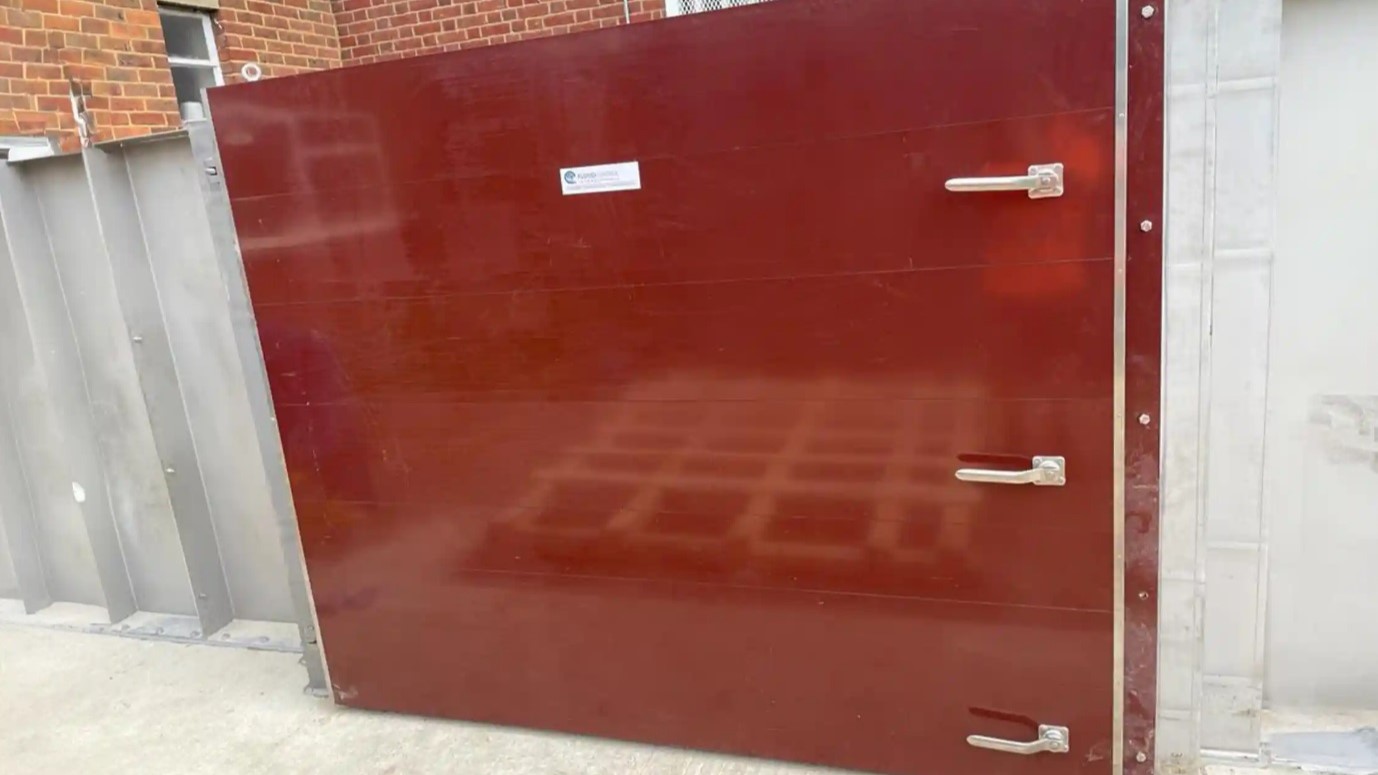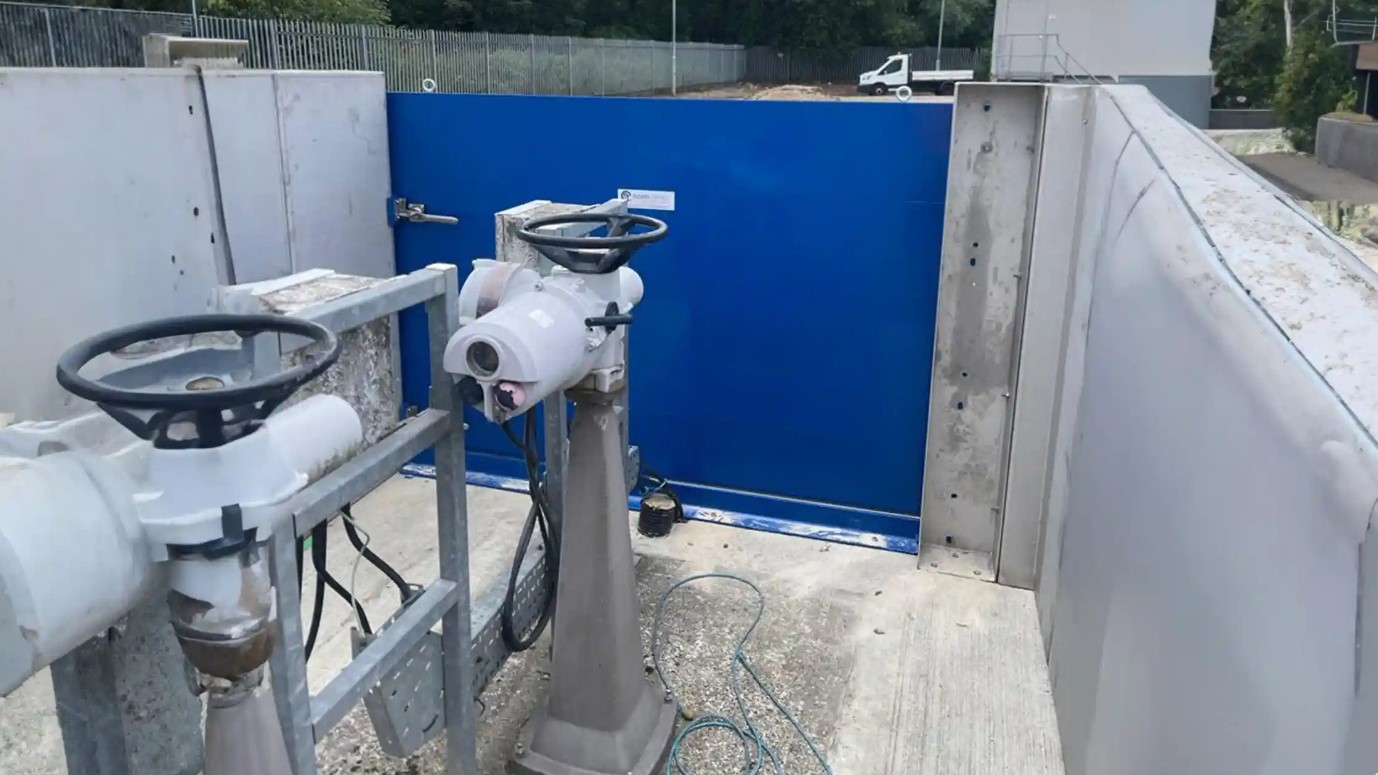Flooding from rivers, surface water, high tides and groundwater can all affect water company treatment works and pumping stations, with flood waters impacting on their operation and at times stopping them completely.
For Thames Water, fluvial flooding from rivers is a much larger risk than coastal flooding due to there being a higher number of assets potentially being affected and the wider impact when this type of flooding occurs.
During AMP6 (2015-2020), Thames Water successfully delivered a number of fluvial flood protection projects, utilising a framework agreement between themselves and Flood Control International; this included works at Maple Lodge, Coppermills, Rye Meads and East Hyde, plus several more at risk sites.
More recently during AMP7 (2020-2025), several sites were identified as being critically at risk of flooding, and so a programme of works was initialised to enable protection measures to be implemented swiftly and effectively.
The Requirement

The Solution
In early 2022, MWH Treatment appointed Flood Control International under a preferred supplier engagement contract, to carry out individual site surveys and to propose design solutions, in order to develop a detailed design and target cost. Pivotal to meeting the DWI regulatory date, Flood Control International provided options for comprehensive solutions across all four sites to safeguard against potential fluvial, pluvial, or groundwater flooding events.
The final, accepted proposal, which encompassed the design, manufacture, installation and water testing of various flood prevention measures, including hinged floodgates, SR4 security rated flood doors, vertically hinged pivot floodgates, demountable slot-in barriers, steel plate walls, and other site-specific solutions, was completed on time in November 2023, following full contract award in September 2022.
Liam Madigan, MWH Treatment Project Manager said:
“Flood Control International, a trusted subcontractor to MWH Treatment, brought the expertise and professionalism required to review the proposed solutions through collaboration, and offered opportunities during the design phase which led to both cost and time savings to the programme.”



